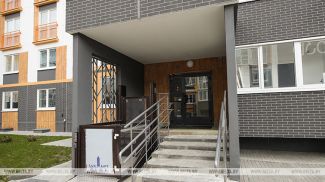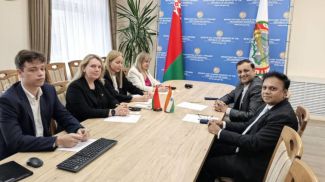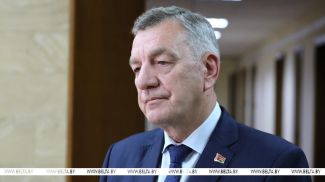MINSK, 6 May (BelTA) – The Council of the Republic of the National Assembly of Belarus passed the bill on the amnesty on the occasion of the 75th anniversary of the Victory in the Great Patriotic War of 1941-1945 at a session on 6 May, BelTA has learned.
The bill was presented before the senators by Internal Affairs Minister Yuri Karayev. The minister said that according to provisional data, as many as 5,372 convicts will be freed from punishment, including 1,985 to be released from prisons and 727 from open-type correctional institutions. As many as 2,660 convicts will be freed from penalties that do not include confinement.
Apart from that, the term of sentence will be reduced by one year for some 6,400 convicts. The list of such persons has been expanded in comparison with the last year's amnesty. It now includes persons, who have committed corruption crimes, and all the citizens convicted of drug trafficking crimes. However, the amnesty will not apply to underage citizens, who have been convicted of drug trafficking crimes committed as part of organized groups, using lab equipment, or resulting in human deaths.
Following the established tradition, the amnesty will apply to underage citizens, pregnant women, women and lonely men, who raise kids under 18, people with severe disabilities, people suffering from cancer and the HIV infection, veterans of combat actions in foreign countries, and people affected by the Chernobyl nuclear power plant accident. The amnesty will apply only to those, who demonstrate good behavior and have fully repaid the damage they have caused.
The amnestied people will get assistance with finding jobs and places to live, with getting new personal identification papers if necessary. Chairman of the Legislation and State Construction Commission of the Council of the Republic of the National Assembly of Belarus Sergei Sivets pointed out the fact while talking to reporters. The senator said that in in addition to regulating the liberation from criminal responsibility the amnesty bill addresses matters relating to resocialization, rehabilitation and adaptation of citizens who will walk free. Municipal government agencies have been instructed to take a set of measures to address their possible needs.













